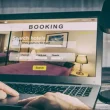Introduction
Breaking out of the traditional healthcare mold may feel daunting, but it’s also incredibly rewarding. Clinical entrepreneurship allows healthcare professionals to move beyond direct patient care and create innovative healthcare solutions.
Clinical entrepreneurship is becoming a game-changer for healthcare professionals. In this guide, we’ll explore what clinical entrepreneurship is, why it matters, the skills you need, challenges you might face, and practical steps on how to become a Clinical Entrepreneur. By the end, you’ll have a clear roadmap to kickstart your journey into this exciting field.
What is Clinical Entrepreneurship?
Clinical entrepreneurship is using healthcare knowledge to build businesses that solve real-world problems. Unlike traditional roles, it blends medical expertise with business strategy.
For example, a nurse could develop a telehealth platform, or a pharmacist might launch a medication adherence app.
It focuses on innovation—spotting gaps in patient care, research, or services and creating effective solutions. Simply put, it’s where clinical experience meets creative problem-solving.
Why More Healthcare Professionals Are Becoming Entrepreneurs
There’s a growing trend of doctors and nurses becoming business owners. Here’s why:
- Desire for Freedom: Many healthcare workers want to control their schedules and work on their terms.
- New Opportunities: Technology and digital platforms have opened doors to new ways of offering healthcare services.
- Burnout in Traditional Roles: Long hours and high stress in hospitals lead many to look for more balanced options.
- Passion for Innovation: Many healthcare workers see gaps in care and want to solve real problems through their own ideas.
Why Healthcare Professionals Should Consider It
Healthcare professionals are uniquely positioned to innovate. Here’s why:
- Demand for Solutions: Hospitals and patients need better systems and technologies.
- Autonomy: Entrepreneurs control their career paths and work-life balance.
- Income Potential: Successful ventures can generate revenue beyond clinical salaries.
- Impact: Opportunities to improve patient outcomes on a broader scale.
Many balance entrepreneurship with practice, using clinical insights to guide healthcare ventures.
Key Skills for Clinical Entrepreneurs
Success goes beyond clinical knowledge. You’ll need:
1. Hard Skills:
- Business management basics
- Financial planning and budgeting
- Regulatory and compliance knowledge
- Market research
2. Soft Skills:
- Leadership and teamwork
- Problem-solving and critical thinking
- Communication and networking
Your clinical expertise remains a unique edge. Pairing it with business know-how makes your solutions practical and scalable.
Challenges and How to Overcome Them
Every entrepreneurial journey has hurdles:
- Funding Issues: Secure support through grants, partnerships, or angel investors.
- Regulatory Complexity: Stay informed and seek expert advice.
- Time Management: Balance clinical duties and business by prioritizing and delegating.
- Competition: Differentiate your idea with strong patient value.
Mentorship is key—guidance from experienced entrepreneurs helps avoid costly mistakes.
Also read: Aggressiveness and Prognosis in Hematologic Malignancies
Step-by-Step Guide to Becoming a Clinical Entrepreneur
Here’s a roadmap to get started:
- Identify a Problem or Niche: Look for areas needing improvement.
- Research & Validate: Test your idea with surveys, interviews, or pilot projects.
- Create a Business Plan: Define goals, funding strategies, and marketing plans.
- Secure Funding or Partnerships: Explore grants, investors, or collaborations with hospitals.
- Launch & Iterate: Start small, gather feedback, and refine.
- Scale: Expand into new markets or integrate advanced technologies.
Always keep ethics and patient safety at the forefront for credibility and long-term success.
Real-Life Inspiration
Examples show what’s possible:
- Dr. Jane Smith: Built a telehealth platform reducing wait times in rural areas.
- Alex Johnson, RN: Created a mobile app for medication adherence.
- Pharma Innovator Team: Designed a personalized medication delivery subscription.
These ventures prove that clinical insight, combined with creativity, drives impactful healthcare businesses.
Resources for Aspiring Clinical Entrepreneurs
Starting out can feel overwhelming, but resources are available:
- Programs & Courses: Teach business and clinical integration.
- Mentorship Networks: Connect with experienced clinical entrepreneurs.
- Business Tools: Use platforms for finance, project management, and marketing.
- Professional Associations: Stay informed on healthcare trends and regulations.
Start today by exploring programs like the Clinical Research Entrepreneurship Program to gain the skills, network, and tools you need to start your journey. Your next big healthcare innovation could be just around the corner.
Real-Life Examples
Many healthcare professionals have made the leap to business and succeeded. For example:
- A nurse who started a senior care service in her town
- A physiotherapist who created online workout programs
- A doctor who built a blog that now earns income from ads and sponsorships
- A dietitian who launched a healthy meal prep company
What they all had in common was the drive to solve problems and make people’s lives better.
Conclusion
Healthcare professionals are natural problem solvers, hard workers, and trusted by their communities. These are perfect traits for successful entrepreneurs. Whether you dream of running your own clinic, launching a health-focused app, or offering wellness services, the path is open.
The key is to start with a clear idea, learn business basics, and stay committed. With time, effort, and passion, healthcare professionals can create businesses that not only bring income but also make a real difference in people’s lives.
So if you’re in healthcare and thinking about building something of your own, now is the time. Believe in your skills, explore your options, and take the first step toward becoming a healthcare entrepreneur. Your future self—and your future clients—will thank you.












